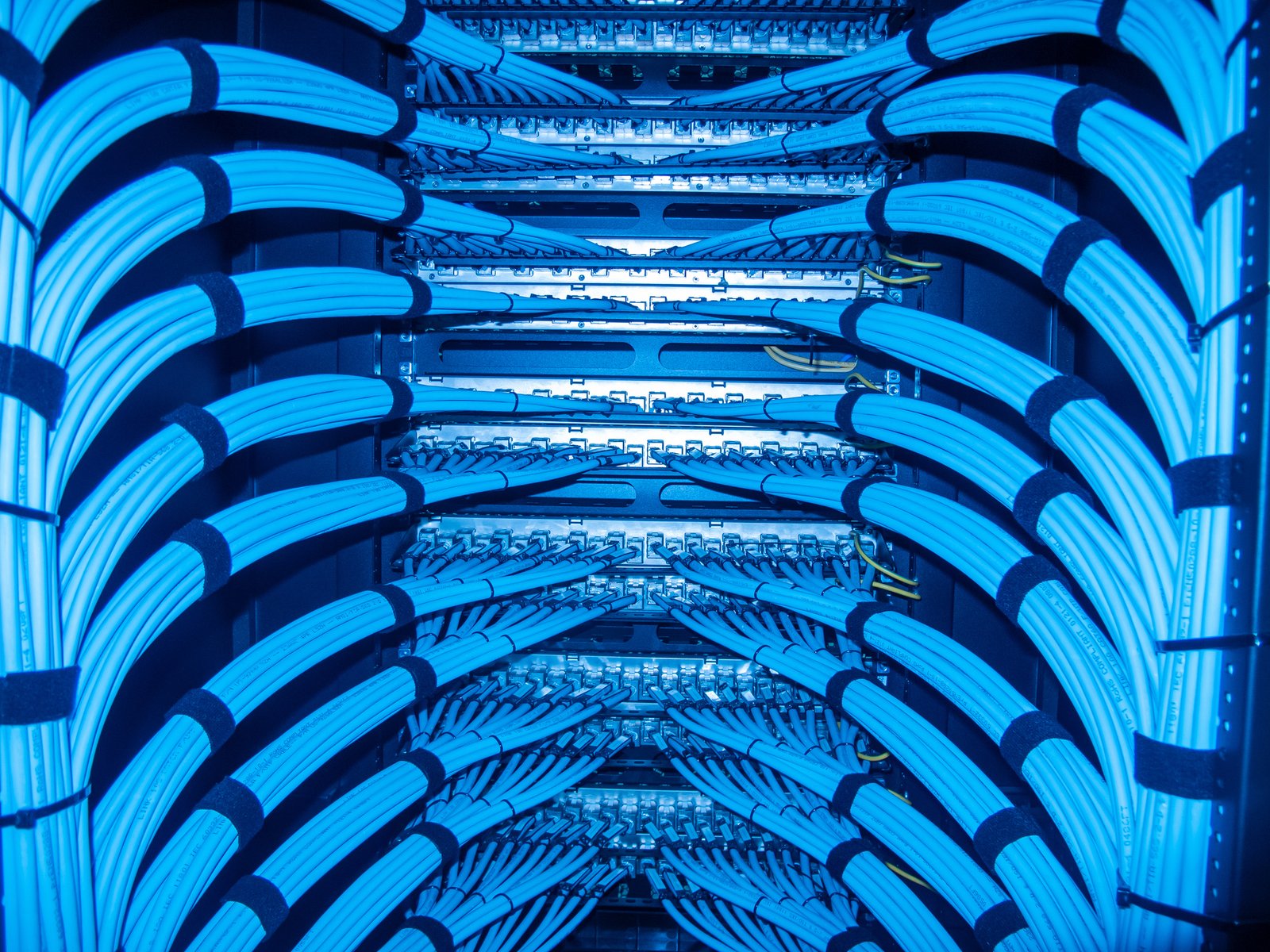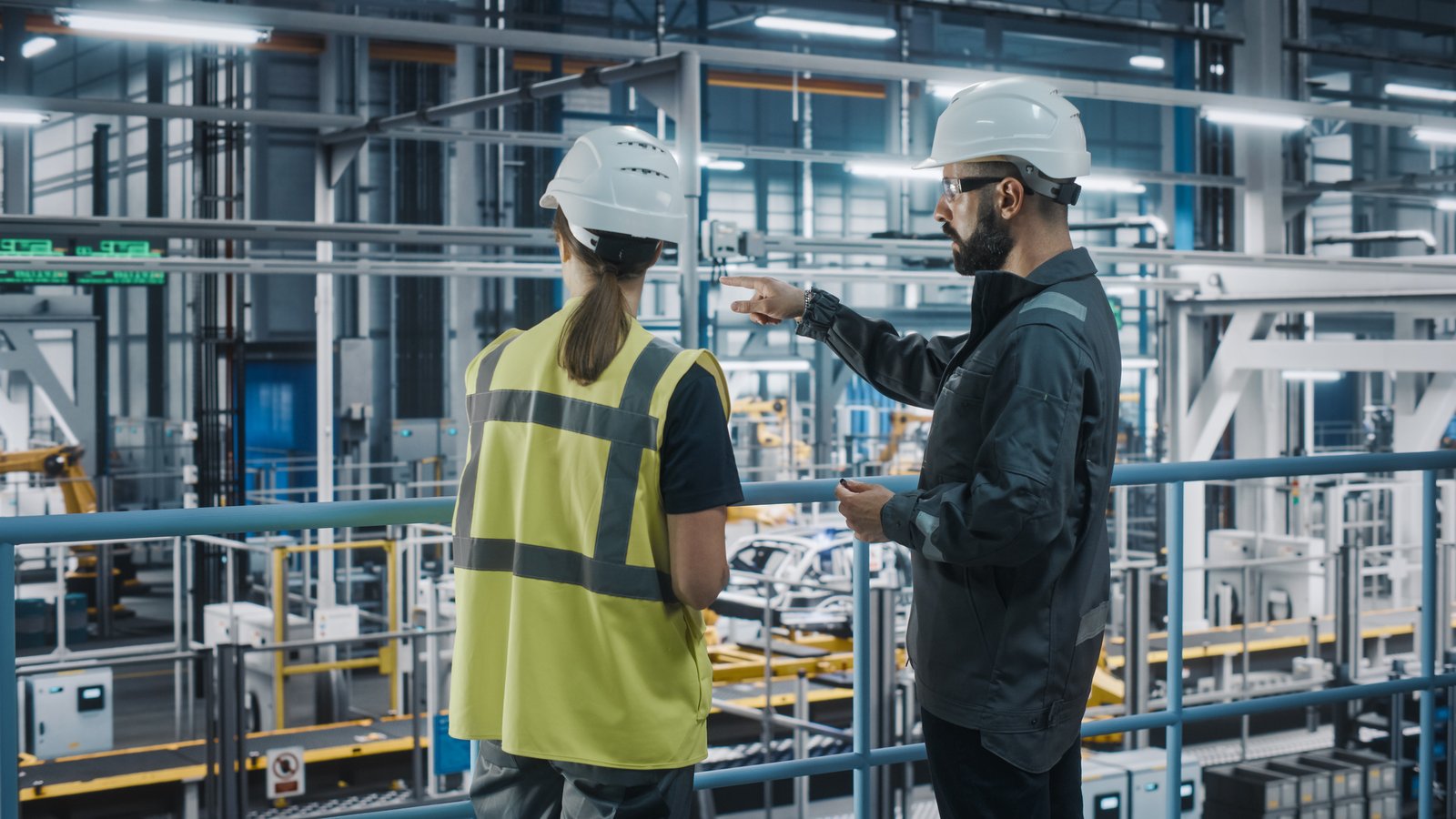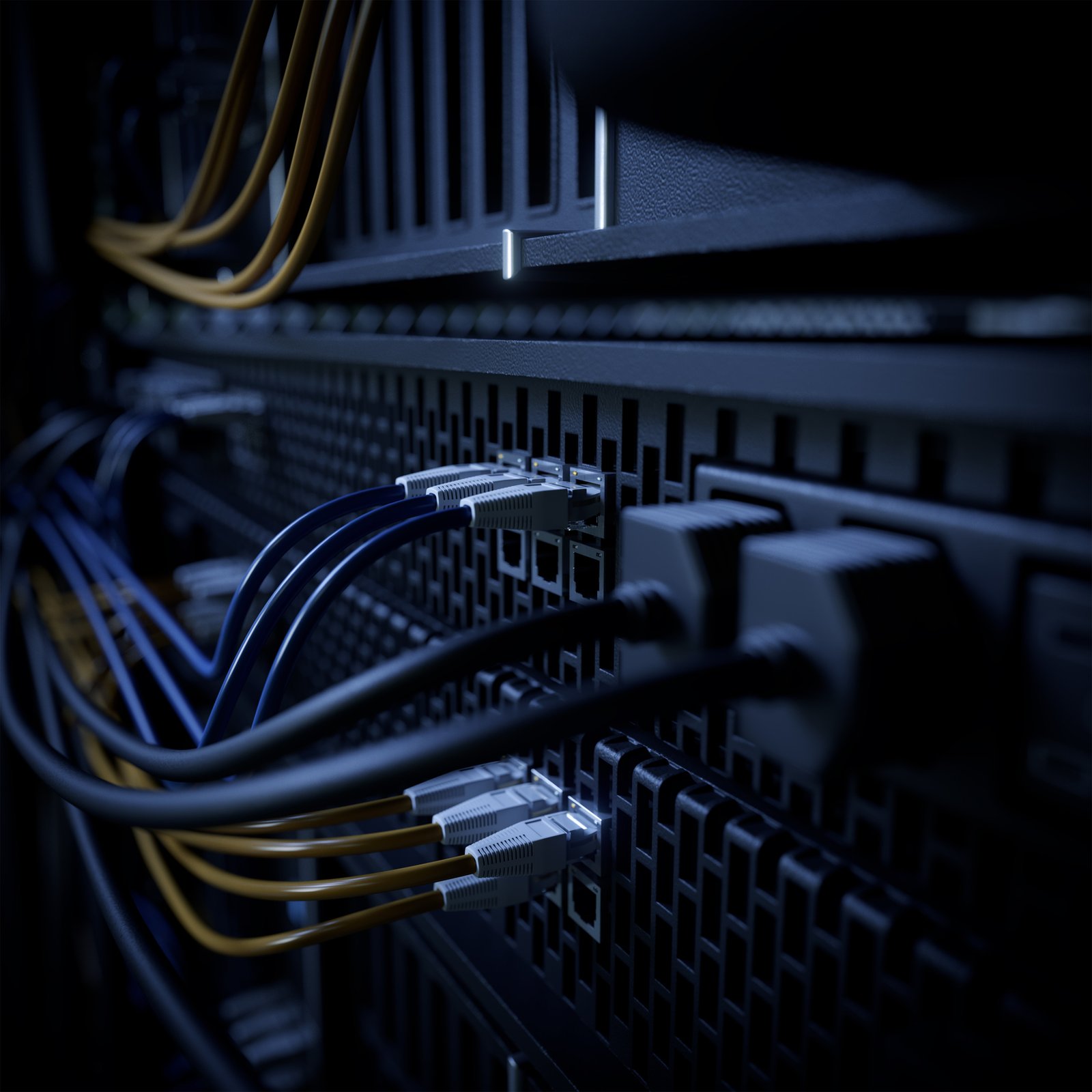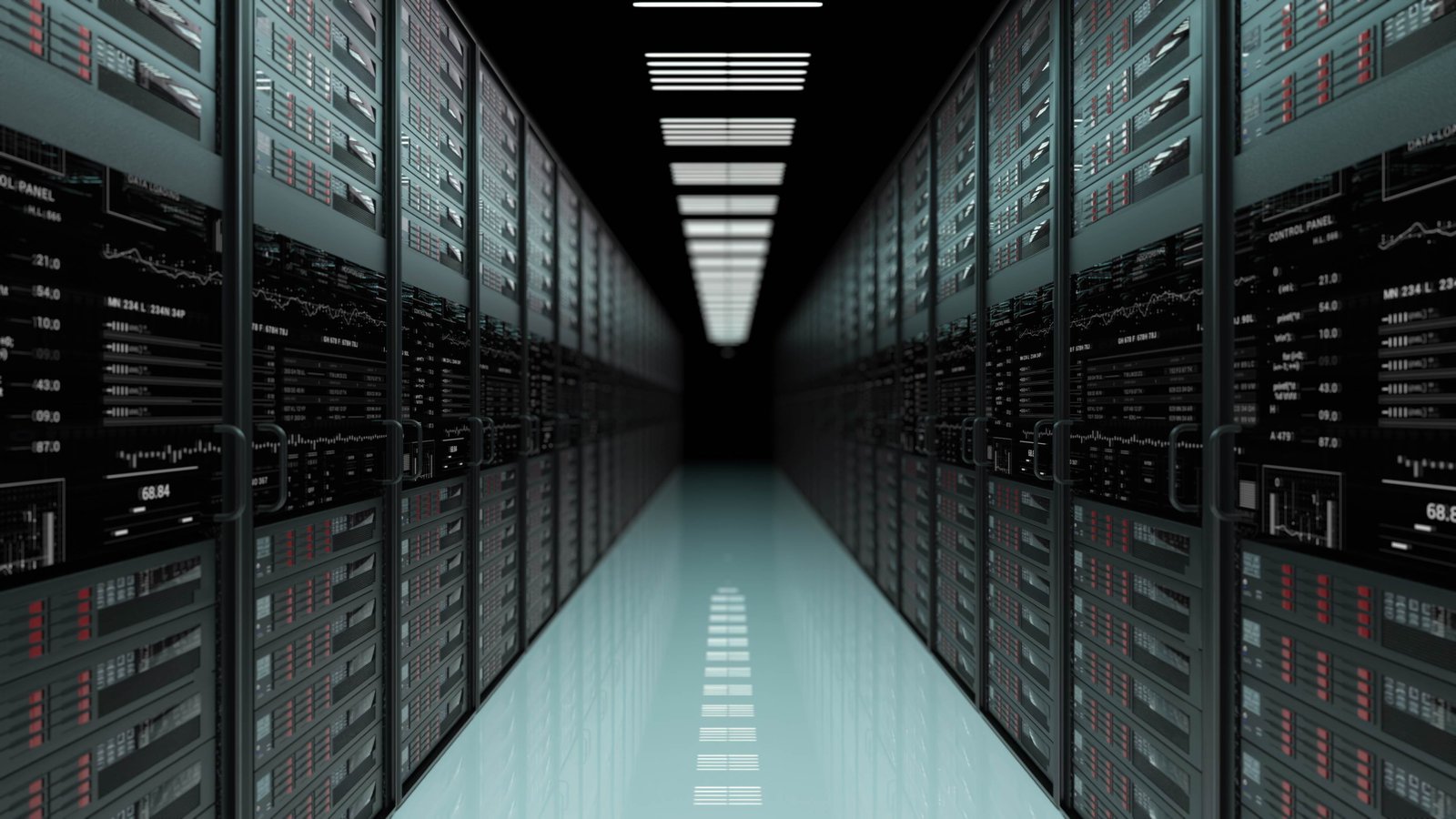In today’s digital-first world, data has become the cornerstone of business operations.
As our reliance on digital information grows, so does the need to protect it. Data centers, the epicenter of our digital infrastructure, are prime targets for malicious actors and environmental threats.
“The nature of cyberattacks is changing fast. Generative AI, cloud complexity and geopolitical tensions are among the latest weapons and facilitators in attackers’ arsenals,” reported VentureBeat. “Three-quarters (74 percent) of security decision-makers say their organizations’ sensitive data was “potentially compromised or breached in the past 12 months” alone.
Welcome to the Era of the “Cyber-Physical Attack”
While much of the spotlight has shone on cyberthreats from afar, such as ransomware and DDoS attacks, at USNet we understand that advanced physical security solutions are also needed to protect your critical assets against potential threats and unauthorized access.
CNBC reported in March that we may be entering an era of the “cyber-physical attack” fueled by artificial intelligence (AI). “In fact, last month the FBI warned Congress that Chinese hackers have burrowed deep into the United States’ cyber infrastructure in an attempt to cause damage. FBI Director Christopher Wray said Chinese government hackers are targeting water treatment plans, the electrical grid, transportation systems and other critical infrastructure inside the U.S.,” reported CNBC.
This article explores the critical importance of data center security, the potential risks faced, and the advanced solutions available to mitigate these physical threats.
Why Enhancing Data Center Security Matters
The security of data centers is not just a technical concern; it’s a fundamental business imperative. Here’s why enhancing data center security is crucial:
- Safeguarding valuable data assets: In the information age, data is often a company’s most valuable asset. Protecting this data from theft, corruption, or loss is essential for maintaining competitive advantage and operational continuity.
- Maintaining business continuity: Any breach or disruption in a data center can lead to significant downtime, resulting in lost revenue, productivity, and customer trust.
- Ensuring regulatory compliance: Many industries are subject to strict data protection regulations. Robust data center security is often a legal requirement, with non-compliance potentially leading to hefty fines and legal consequences.
- Protecting customer trust and company reputation: Data breaches can severely damage a company’s reputation. Customers entrust businesses with their personal information, and any breach of this trust can have long-lasting negative impacts.
The annual Deloitte Cyber Threat Trends report released in March 2024 said that “few events can undermine the faith of customers, investors, and regulators more than a data breach or a shutdown of digital operations. Cybersecurity is a critical — and growing — priority for everyone. Its importance is reflected in our report, where we saw a few trends emerge:
- Ransomware affected 66 percent of organizations in 2023.
- Abuse of valid credentials accounted for 44.7 percent of data breaches.
- There was a 400 percent increase in IoT malware attacks across various industries, with the manufacturing industry being the most targeted sector globally.
Potential Threats and Vulnerabilities
Data centers face a myriad of threats, both physical and digital.
“Facilities with on-premises data centers need to secure the hardware and software within them. There are two types of security: physical security and software security,” explained the International Society of Automation (ISA).
The ISA article breaks down the two:
- Physical security is the protection of people, property, and assets, such as hardware, software, network, and data, from natural disasters, burglary, theft, terrorism, and other events that could cause damage or loss to an enterprise or institution.
- Software security involves techniques to prevent unauthorized access to the data stored on the servers.
Understanding these risks is the first step in developing effective security strategies:
- Unauthorized physical access: Despite the digital nature of data, physical intrusion remains a significant threat. Unauthorized individuals gaining access to server rooms can potentially steal, damage, or compromise sensitive information.
- Cyber-attacks and data breaches: From sophisticated hacking attempts to social engineering tactics, cyber threats are constantly evolving. These attacks can compromise data integrity, lead to information theft, or disrupt operations.
- Insider threats: Sometimes, the greatest risks come from within. Disgruntled employees, contractors, or other insiders with privileged access can pose significant security risks.
- Natural disasters and environmental risks: Data centers are also vulnerable to natural disasters such as floods, fires, or earthquakes. Environmental factors like temperature fluctuations or power outages can also pose serious risks to data center operations.
Advanced Physical Security Solutions
To combat these diverse threats, data centers are implementing increasingly sophisticated security measures:
- Biometric access control systems: These systems use unique physical characteristics like fingerprints, retinal scans, or facial recognition to ensure only authorized personnel can access sensitive areas.
- AI-powered video surveillance: Advanced camera systems coupled with artificial intelligence can detect unusual activities, identify potential threats, and alert security personnel in real-time.
- Environmental monitoring systems: These systems continuously monitor factors like temperature, humidity, and power usage, alerting staff to any anomalies that could potentially damage equipment or disrupt operations.
- Multi-factor authentication protocols: By requiring multiple forms of identification, these systems add an extra layer of security, making it much more difficult for unauthorized individuals to gain access.
“Data center physical security often involves the integration of various technologies and systems, such as access control systems, surveillance cameras, and intrusion detection systems. Achieving seamless integration among these components can be complex and may require specialized expertise,” said a Global Market Insight report.
USNet’s Comprehensive Security Approach
USNet offers a holistic approach to data center security, combining cutting-edge technology with customized strategies to meet each client’s unique needs. Their solutions include:
- Access Control: USNet implements advanced systems to prevent unauthorized entry, ensuring that only authorized personnel can access sensitive areas of the data center.
- Video Surveillance: With continuous monitoring and recording capabilities, USNet’s video surveillance solutions provide round-the-clock security oversight.
- Tailored Security Strategies: Recognizing that each data center has unique requirements, USNet develops and implements customized security solutions that address specific needs and vulnerabilities.
Experience has taught USNet that investing in comprehensive data center security offers numerous benefits:
- Reduced risk of data breaches and associated costs: By implementing robust security measures, organizations can significantly reduce the likelihood of costly data breaches.
- Enhanced operational efficiency: Advanced security systems can streamline access procedures and monitoring, improving overall operational efficiency.
- Improved compliance with industry regulations: Robust security measures help organizations meet and exceed regulatory requirements, avoiding potential legal and financial penalties.
- Increased customer confidence and trust: By demonstrating a commitment to data security, organizations can build stronger relationships with their customers and stakeholders.
In an era where data is king, the security of data centers has never been more critical. The threats are diverse and ever-evolving, ranging from sophisticated cyber-attacks to insider threats and environmental risks. However, with advanced physical security solutions like those offered by USNet, organizations can significantly mitigate these risks.
Investing in robust data center security is not just about protecting physical assets; it’s about safeguarding the very foundation of modern business operations. It ensures business continuity, maintains regulatory compliance, and protects the trust that customers place in organizations.
Contact USNet today to discuss your specific security needs and how we can develop and implement a tailored security strategy that will keep your data center secure, compliant, and operating at peak efficiency.












